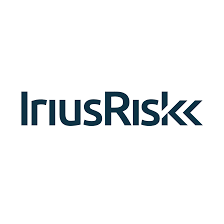Professional services have long been a vital component of the global economy, providing specialized expertise and solutions to businesses across industries. From consulting and legal services to accounting and IT support, professional services firms help organizations navigate complex challenges, improve efficiency, and drive growth. As the business environment continues to evolve, so too does the landscape of professional services. In this blog, we explore the key trends shaping the industry and the opportunities that lie ahead for firms looking to stay competitive in a rapidly changing market.
1. Digital Transformation: Redefining Service Delivery
Digital transformation is at the forefront of change in the professional services industry. Firms are increasingly leveraging technology to enhance service delivery, improve client engagement, and streamline operations. Cloud computing, artificial intelligence (AI), and data analytics are just a few of the tools that are enabling professional services firms to offer more efficient and scalable solutions.
For example, AI-powered tools are being used to automate routine tasks, such as document review in legal services or data entry in accounting, freeing up professionals to focus on higher-value activities. Similarly, cloud-based platforms are enabling real-time collaboration with clients, providing greater transparency and flexibility in service delivery. As digital transformation continues to advance, firms that embrace these technologies will be better positioned to meet client expectations and deliver value in new and innovative ways.
2. The Shift to Outcome-Based Models
Traditional professional services have often been billed based on time and materials, but there is a growing shift towards outcome-based models. In an outcome-based approach, firms are compensated based on the results they achieve for their clients, rather than the time spent on a project. This model aligns the interests of the service provider with those of the client, incentivizing firms to deliver measurable value.
Outcome-based models are particularly relevant in areas such as consulting and IT services, where firms can define specific performance metrics and deliverables. As clients increasingly demand greater accountability and ROI from their professional services providers, the adoption of outcome-based pricing is expected to grow, offering firms an opportunity to differentiate themselves in a competitive market.
3. Specialization and Niche Expertise
As industries become more complex and specialized, there is an increasing demand for professional services firms that offer niche expertise. Clients are seeking out providers with deep industry knowledge and a track record of success in addressing specific challenges. This trend is driving a shift away from one-size-fits-all solutions and towards more tailored, sector-specific services.
For example, in the legal industry, firms with expertise in emerging areas such as cybersecurity law or intellectual property for tech startups are seeing increased demand. Similarly, in consulting, firms that focus on industries like healthcare, financial services, or environmental sustainability are positioning themselves as valuable partners for clients facing unique challenges in these areas. By developing and promoting niche expertise, professional services firms can attract high-value clients and build a reputation as industry leaders.
4. The Rise of Remote and Flexible Work
The COVID-19 pandemic has accelerated the adoption of remote and flexible work arrangements across all industries, including professional services. Firms have adapted to this new reality by investing in digital tools and platforms that enable remote collaboration, communication, and project management. While the pandemic may have been the catalyst, remote work is likely to remain a permanent fixture in the professional services landscape.
The shift to remote work offers several advantages for professional services firms, including access to a global talent pool, reduced overhead costs, and increased employee satisfaction. However, it also presents challenges, such as maintaining a strong company culture and ensuring effective client engagement in a virtual environment. Firms that successfully navigate these challenges will be better equipped to attract and retain top talent while continuing to deliver high-quality services to clients.
5. Sustainability and Corporate Social Responsibility (CSR)
Sustainability and corporate social responsibility (CSR) are becoming increasingly important considerations for clients and professional services firms alike. Companies are under growing pressure to demonstrate their commitment to environmental, social, and governance (ESG) principles, and they are turning to professional services firms for guidance on how to achieve their sustainability goals.
This trend presents a significant opportunity for firms that can offer expertise in areas such as ESG reporting, sustainability strategy, and ethical business practices. By aligning their services with the growing demand for CSR and sustainability, professional services firms can not only support their clients in meeting these objectives but also enhance their own reputation as responsible and forward-thinking organizations.
Conclusion: Adapting to a Changing Market
The professional services industry is undergoing significant transformation, driven by technological advancements, changing client expectations, and evolving market dynamics. Firms that are agile, innovative, and responsive to these trends will be well-positioned to thrive in this new landscape.
By embracing digital transformation, adopting outcome-based models, developing niche expertise, supporting remote work, and prioritizing sustainability, professional services firms can unlock new opportunities and deliver greater value to their clients. As the industry continues to evolve, the ability to adapt and innovate will be key to long-term success.





























































































































































